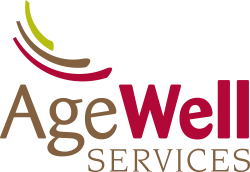Today is the day to wear red!
February is American Heart Month and the first Friday of the month is National Wear Red Day to raise awareness about cardiovascular disease in women.
Heart disease is the number one killer of women in the United States, killing 301,280 women in 2019, about 1 in 5 deaths. For women living with heart disease, about 1 in 16 women 20 years and older have coronary artery disease.
The good news is that the risk for heart disease can be lowered by living a heart-healthy lifestyle. The Center for Disease Control and Prevention have put together some tips to reduce the risk for heart disease and stroke:
1. Learn your health history
Talk to your family and your doctor. Learn about you health history and know your risks. Besides you lifestyle, you are more likely to have heart disease if you have a close blood relative with heart disease. Collect information from your relatives. Be sure to include when they were first diagnosed. You can work with your doctor to lower your risks.
2. Eat a healthy diet
Make healthy food choices. Eat more fruits, vegetables, whole grains, lean meats, and low-fat dairy. Use less salt, eat less saturated fat, and avoid added sugars.
Healthy recipes don’t have to taste bad! Fresh vegetables and spices can add plenty of flavor to meals. The American Heart Association is a great resource for tasty heart-healthy recipes including this recipe for Stuffed Bell Peppers.
3. Move more, sit less
Sitting has become the new smoking. A sedentary lifestyle increases the risk of heart disease. The CDC recommends at least 150 minutes of moderate exercise each week and muscle-strengthening activities twice a week. Take a bike ride, go for a brisk walk, play a little game of soccer with the grandkids!
John Hopkins suggests 3 kinds of exercise that boost heart health: aerobic exercise, resistance training, and stretching, flexibility and balance.
The AgeWell Services Wellness Center offers a variety of fitness classes in a range of ability levels to help you boost your heart health like Spin Class, Line Dancing, Dumbbells & Weights, and Yoga. Aquatics Exercise Classes are also available through the Senior Center Activities program.
4. Quit smoking
If you don’t smoke, don’t start. If you do smoke, it’s never too late to quit. Your body begins healing within minutes of quitting. Your heart rate and blood pressure drop the first 20 minutes after you quit. Over the next few days, your carbon monoxide level in your blood will return to normal. Your circulation and lung function will improve. The shortness of breath you have will decrease. In the first couple of years after quitting, your risk of heart attack drops dramatically. After five years, your risk of cancers begin to decrease. And after 15 years, your risk of coronary heart disease are almost that of a non-smoker.
5. Take medicines as directed
Follow your doctor’s instructions carefully when it comes to your medications. Always ask your doctor or pharmacist questions if you don’t understand something. And don’t stop taking your medication without speaking with your doctor.
6. Rethink your drink
Sugary drinks are loaded with empty calories. Drink water instead. If you find water “boring”, try adding fruit or vegetables to naturally flavor the water. You can also brew some tea, let it cool if you’d prefer a cold beverage.
If you drink alcohol, consume it in moderation.
7. Monitor your blood pressure
Self-measured blood pressure monitors (SMBPs) are easy and safe to use at home. Your doctor can demonstrate how to use a monitor on your own.
AgeWell Services also offer free blood pressure checks at Tanglewood Park in the Community Room on Wednesdays from 12 pm to 2 pm.
Take steps to lower your risk of heart disease and to live a heart-healthy lifestyle. If you don’t know your family medical history, try to learn if there is a history of heart disease. Eat a healthy diet of fruits, vegetables, lean meats, low added sugar, and low saturated fats. Get up and get your heart pumping at least 20 minutes a day. Quit smoking, it’s never too late. Take your medications as directed. Avoid empty calories in sugar drinks and opt for water instead. Monitor your blood pressure regularly at home or using the free blood pressure checks through AgeWell Services.
To learn more about the Wellness Center classes and services, visit the Wellness Program or call (231) 755-0434.
